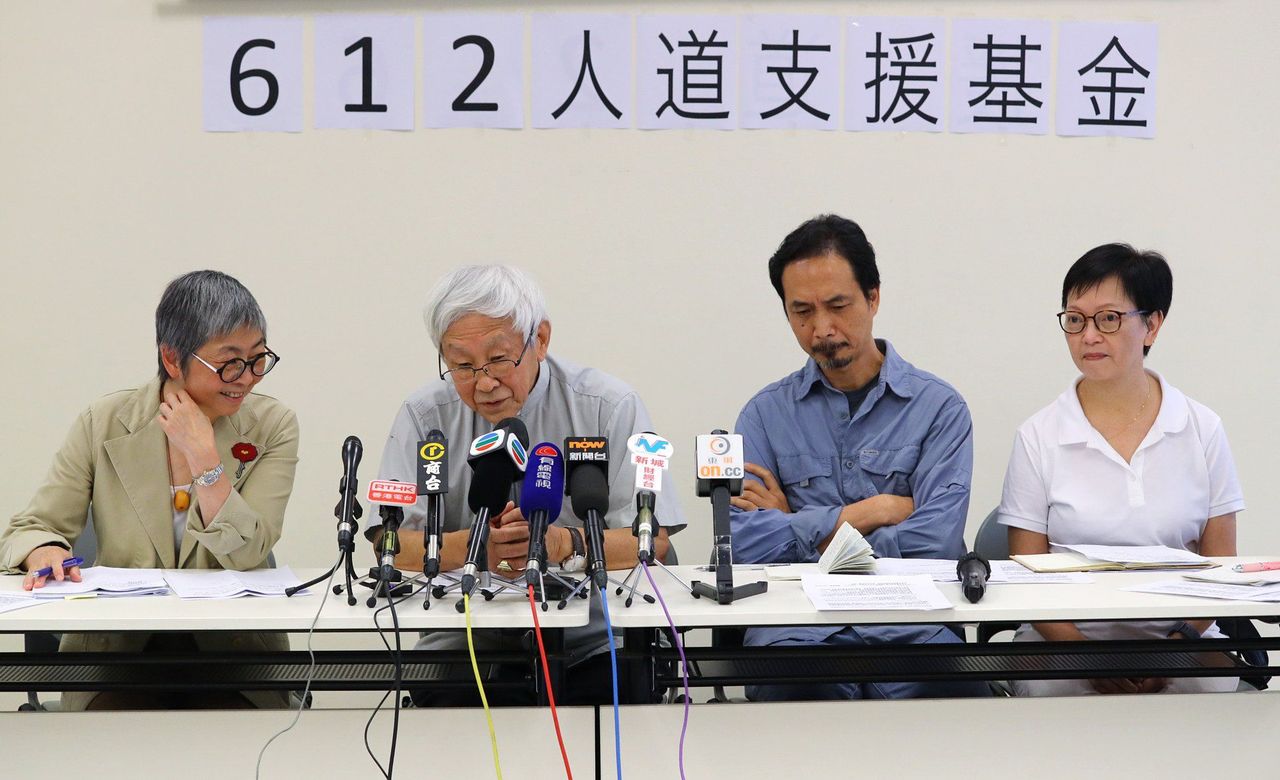Hong Kong News

Not enough consultation on plan to tighten Hong Kong crowdfunding rules, groups say
Hong Kong’s financial authorities have been accused of downplaying the public consultation over a contentious plan to regulate crowdfunding, with some concern groups warning that the proposed rules threatened their survival.
The controversy is over a proposal unveiled last December by the Financial Services and Treasury Bureau that would require anyone planning to collect donations from individuals and others – online or offline – to apply to a new Crowdfunding Affairs Office for approval to proceed.
Law enforcement agencies will be empowered to ban or stop any unapproved or illegal crowdfunding activity and prosecute not only the organisers but also those who donate.
 Under the proposal, those raising funds above a specific amount must ask donors to contribute in their real name.
Under the proposal, those raising funds above a specific amount must ask donors to contribute in their real name.
Several concern groups representing patients with various medical conditions joined non-governmental organisations and the city’s leading opposition party in accusing the bureau of making only a limited effort to engage the public on the proposed new rules.
They also demanded an extension to the three-month consultation exercise, which ended on March 20.
The proposal followed high-profile crackdowns on crowdfunding initiatives to support those charged over their roles in the 2019 anti-government protests. One of them, the 612 Humanitarian Relief Fund, offered more than HK$243 million (US$31 million) it raised in donations to individuals facing criminal prosecution or financial strain in the wake of the unrest.
Under the 25-page proposal, those planning a crowdfunding campaign must provide their personal data and information about the local bank account to be used for the drive and the beneficiaries. They must also pledge that the drive will not involve any activity that jeopardises national security.
The Concern Group on Crowdfunding Regulations, a new alliance set up last month by five patient groups and fundraising platforms, warned that the proposals – which also broadly cover day-to-day fundraising drives – would trigger enormous administration costs, discourage donations and even affect their survival.
“Nearly half of our donors are anonymous. It is very difficult for us to trace their identities and we also fear it will affect their desire to donate if they are required to provide their real names,” said Lam Yung-ki, organising officer of the Hong Kong Neuro-Muscular Disease Association.
 Members of the now-defunct 612 Humanitarian Relief Fund. (From left)
Margaret Ng Ngoi-yee, Cardinal Joseph Zen Ze-kiun, Hui Po-keung and Cyd
Ho Sau-lan.
Members of the now-defunct 612 Humanitarian Relief Fund. (From left)
Margaret Ng Ngoi-yee, Cardinal Joseph Zen Ze-kiun, Hui Po-keung and Cyd
Ho Sau-lan.
Under the proposal, those raising funds above a specific amount must ask donors to contribute in their real name.
Lam questioned the need for an extra layer of regulation when current fundraising activities on the street or through banquets were already overseen by the Social Welfare Department.
With several fundraising activities put on hold during the Covid-19 pandemic, he warned the proposed changes could deal a blow to the group’s operations, affecting about 40 per cent of its income, or tens of thousands of Hong Kong dollars.
The alliance also highlighted that fundraising efforts had an element of “randomness”, with people encouraged to donate any time, any way they preferred.
The groups feared their fundraising activities would be deemed illegal if they failed to declare every drive, and their good intentions in doing charitable work could, ironically, land them in jail.
Lam said the government had not held any town hall meeting or publicised the consultation, and did not invite charitable organisations to offer their views.
He called for a meeting with the bureau and urged it to hold a public hearing to gauge residents’ views accurately.
The Society for Community Organisation (SoCO), a non-governmental and human rights advocacy group, had similar concerns and lamented the absence of in-depth discussions on the plan to control crowdfunding.
Deputy director Sze Lai-shan argued there was a need for the government to hold more dialogues in directly addressing their concerns.
The Democratic Party said it had tried in vain several times to arrange a meeting with the government.
“With so many issues yet to be clarified, we believe the consultation exercise should be lengthened by at least three more months for more engagement and discussion,” it said.
In a submission sent to the government, the party warned that the “disproportionate” proposed rules would be difficult to implement in real life.
Residents had been helping each other in the community by raising funds for, among other things, urgent medical treatment, defending animal rights or offering a helping hand to workers and colleagues, it said.
“These issues could have been resolved by residents on their own, but now they can only get started with government’s approval,” the party said. “Such an arrangement is not only disturbing and a waste of time, but also disrupts the operation of civil society and discourages residents from caring for the city.”
A spokeswoman for the Financial Services and Treasury Bureau said it received 60 written submissions during the consultation period, including from crowdfunding platforms, charity organisations, professional groups, political groups and members of the public.
Asked to elaborate on its efforts, she said the government collected views from different sectors “expressed at various public occasions”.
“We are now considering and analysing the comments collected, and do not have plans to publish these individual submissions and views,” she said.
The administration would consider “valid concerns and useful suggestions” in drawing up the legislative proposal, she added.
The bureau did not address inquiries on what the government had done to promote the consultation exercise or its cost.











